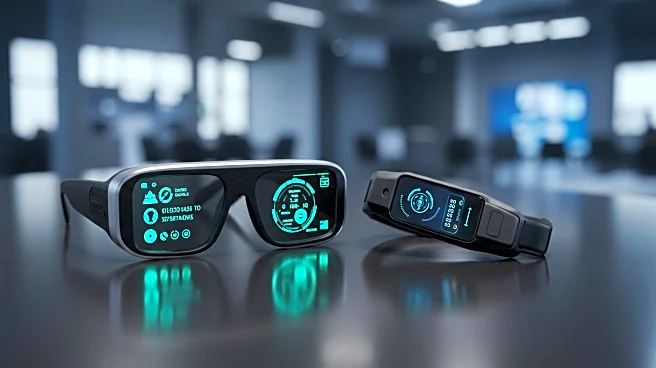What's Happening?
Meta is set to unveil its first consumer-ready smart glasses, codenamed Hypernova, at the upcoming Connect conference. These glasses will feature a small digital display in the right lens and will be controlled via a wristband using hand gestures. The glasses are expected to retail for approximately $800 and will be produced in collaboration with EssilorLuxottica. This launch marks a significant step in Meta's ongoing efforts to expand its presence in the augmented reality (AR) market. The company has previously partnered with Luxottica to release Ray-Ban Stories, which allowed users to capture photos and videos through voice commands. The new Hypernova glasses will offer additional functionalities, including the ability to interact with an AI assistant and display simple information like text messages.
Why It's Important?
The introduction of Hypernova smart glasses represents a strategic move by Meta to solidify its position in the AR space, a market with significant growth potential. By integrating a display and gesture control, Meta aims to enhance user interaction and broaden the appeal of its wearable technology. This development could influence the competitive landscape, as other tech giants like Apple and Google are also investing in AR technologies. The success of Hypernova could lead to increased consumer adoption of AR devices, potentially transforming how users interact with digital content in their daily lives. Additionally, the collaboration with Luxottica, a leader in eyewear, underscores the importance of partnerships in advancing AR technology.
What's Next?
Meta plans to engage third-party developers to create applications for the Hypernova glasses, aiming to showcase innovative uses and generate excitement. The company is also expected to announce a third-generation of its voice-only smart glasses at the Connect conference. As Meta continues to refine its AR offerings, the company will likely focus on improving the functionality and user experience of its wearable devices. The success of Hypernova could pave the way for future advancements in AR technology, including more sophisticated displays and expanded capabilities.










